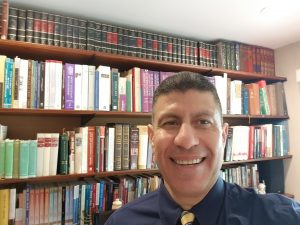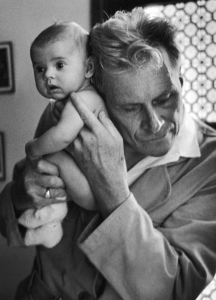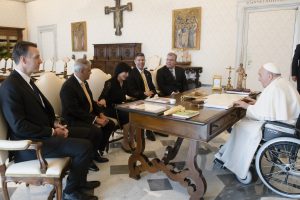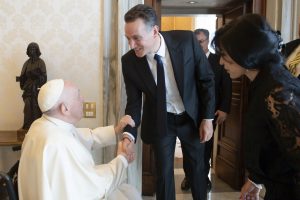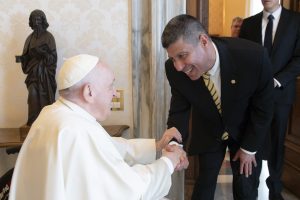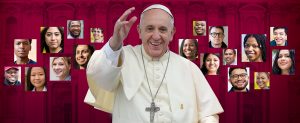
By: Michael M. Canaris
As the two-year global synod process begins, this special time in the Catholic Church demands that we pay attention and read the signs of our times, as called for by the Second Vatican Council. Pope Francis has asked the entire church, even across denominational “borders,” to help him navigate a path forward in passing Christ’s message on to the next and every generation. This requires work and collaboration on the part of the whole (and holy) community.
We learn in the Acts of the Apostles, Chapter 11 that the followers of Jesus were first called Christians in Antioch, in the Roman province of Syria. However, this took some time to spread along with the nascent religion across the ancient world, and so the first generations of believers called themselves followers of “The Way.” Thus, the synodal roots to our Church run deep, as the word synod literally means “traveling together on the way” in Greek (syn + hodos). We often see the pope use a related Spanish phrase: “caminando juntos.”
Saint John Chrysostom – a preacher so rhetorically effective that his nickname that comes down to us in history literally means “golden-tongued” – once even went so far as to say that church and synod can in fact be used interchangeably.
If one wants to learn more about Pope Francis’ vision of this process and how it colors his entire ecclesiology, some important resources may help:
The first is his programmatic homily given Oct. 17, 2015, at the ceremony celebrating the 50th anniversary of the modern synod of bishops created by Pope Paul VI. Many theologians see that speech, along with “Evangelii Gaudium,” as a roadmap for understanding the goals of the Francis agenda from its earliest formulations.
In that homily, Pope Francis expresses his desire for what he calls an “inverted pyramid” ecclesiology. He says that in the church founded by Christ, with special reference to the washing of the feet found in John’s Gospel, “the top is located beneath the base.” Thus, he upends the familiar power structures with the pope at the top, the clergy serving to carry out his mission as dutiful foot soldiers or franchise managers, and the vastly most numerous segment of the Church – the believing laity – left mainly to “pay, pray and obey.”
Instead he says the bishops, cardinals and pope are themselves “ministers,” which comes from “minus” the Latin word for “less.” Interestingly enough, its polar opposite leads to the word magisterium, from “magis” meaning “more,” albeit through a circuitous etymological route. Christians cannot bifurcate these two realities, pitting one against the other. Yet, the institutionalism that would put the clergy somehow “above” the people of God is critiqued constantly by Pope Francis’ condemnation of clericalism and triumphalism.
The second indispensable reflection on the topic was given to the faithful of the diocese of Rome on Sept. 18, 2021. This rather lengthy exhortation calls the Body of Christ across differences in charism and state in life to recognize ever more fully the “infallible sensus fidei in credendo.” This means emphasizing that each of the baptized have a “sense of the faith,” and that anyone in a shepherding role is called to walk “in front, in between, and behind” the flock. Only in this way can the sensus fidei give “everyone a share in the dignity of the prophetic office of Christ, so that they can discern the paths of the Gospel in the present time.”
It is in this text that we get Francis’ rejection of a parliamentarian approach to collective discernment, where one side must either absorb or obliterate the other. Instead, the question and response that must interrogate our lives is as follows: “If I am a Christian, if I believe in Christ, how do I give that gift to others? God’s universal saving will is offered to history, to all humanity, through the incarnation of his Son, so that all men and women can become his children, brothers and sisters among themselves, thanks to the mediation of the Church. This is how reconciliation is accomplished between God and humanity, that unity of the whole human family, of which the Church is a sign and instrument.”
The last reference shedding light on Pope Francis’ vision for the synod was given on Oct. 9, 2021, mere hours before the 59th anniversary of the opening of Vatican II, from which this whole process and event cannot be dissociated. It’s here that he quotes the French conciliar theologian Yves Congar in saying “there is no need to create another Church, but rather to create a different Church.” Pope Francis traces three potential risks for the synod and the renewed church he hopes to develop through its processes of candid discussion and collective discernment: formalism, intellectualism and complacency. All three would result in an undercutting and distorting of the culture of encounter and theology of proximity that should result from active listening and honest storytelling (in that order) as we journey the road of ecclesial belonging together.
He prays for and with all of us at the conclusion: “Come, Holy Spirit! You inspire new tongues and place words of life on our lips: keep us from becoming a ‘museum Church,’ beautiful but mute, with much past and little future. Come among us, so that in this synodal experience we will not lose our enthusiasm, dilute the power of prophecy, or descend into useless and unproductive discussions. Come, Spirit of love, open our hearts to hear your voice! Come, Spirit of holiness, renew the holy People of God! Come, Creator Spirit, renew the face of the earth!”
Our events at Loyola University Chicago in collaboration with the Pontifical Commission for Latin America are geared toward contributing to this collective spiritual renewal. We are immensely grateful that so many students in our network are going to be able to speak to their experiences frankly and openly to one another and to others in positions of influential service in the church, even including the Servant of the Servants of God himself, Pope Francis.
*This piece is adapted from one that ran in the Catholic Star Herald Newspaper, Oct. 21, 2021.
To learn more about the Feb. 24 event and to register for the livestream of this historic encounter, visit the event website: Building Bridges: A Synodal Encounter between Pope francis and University Students.”
Michael Canaris, PhD is an Associate Professor with the Institute for Pastoral Studies at Loyola University Chicago. Further bio and publication information can be found here.

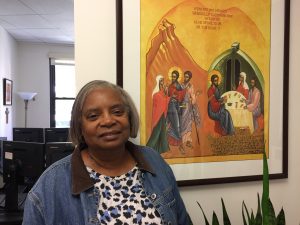
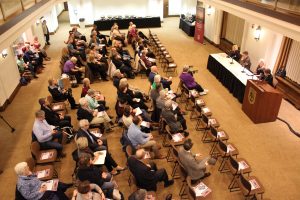
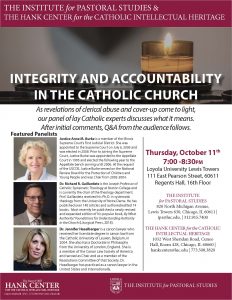
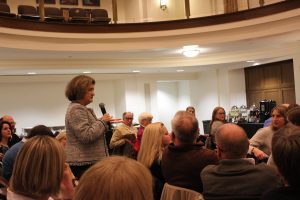
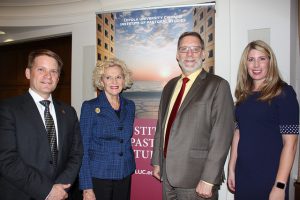
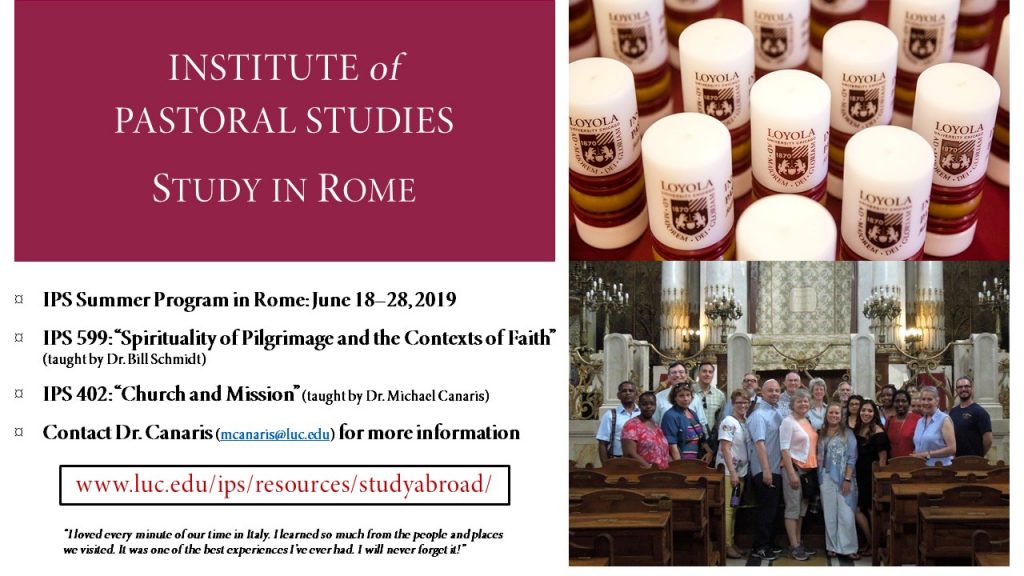
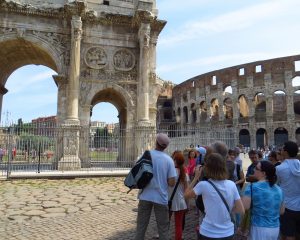
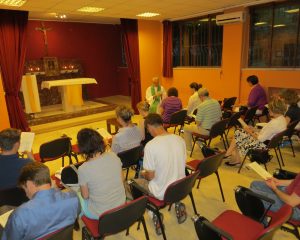

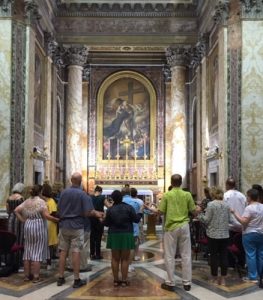
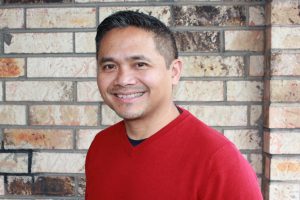 Lolan is a light in this world.
Lolan is a light in this world.
